Daimones
The
Daimones Trilogy,Volume 1
by
Massimo Marino
Genre:
Science Fiction
Get
your Science Fiction from a CERN Scientist ! Over 1,000 ratings on
combined goodreads and Amazon.
Murder,
genocide, the Apocalypse.
Explore
the future of humanity in Massimo Marino's sci-fi debut, Daimones, an
apocalyptic tale that feels like it could happen tomorrow. You may
never sleep through a windstorm again.
Nothing
could have prepared them for the last day. Death swept away the lives
of billions, but spared Dan Amenta and his family, leading them to an
uncertain future. When merely surviving isn't enough and the hunt for
answers begins, memories from the past and troubling encounters lead
Dan to the truth about the extermination of the human race.
Distressing revelations will give new meaning to their very
existence.
Early
humans shaped the future and seeded a plan millions of years in the
making. Now survivors must choose: Endure a future with no past or
fade away into a past with no future?
Once
Humans
The
Daimones Trilogy, Volume 2
The
rebirth of the race of man is closely watched, and the Selected, the
transgenic humans created by the Moîrai, guide and care for the
wellbeing of the remaining humans in their various Communities around
the planet.
Peace
and security are suddenly shattered with acts of sabotage disrupting
the fragile equilibrium of the growing society. Betrayal, fear, and a
cosmic conspiracy risk sending the planet to the brink of
self-destruction. Will Dan Amenta be able to come to terms with the
logic of alien minds? Who is behind the sabotage and why?
Death
and blind violence walk in the secret alleys and in the depths of the
planet, from the coldest lands to the bottom of the oceans; someone
is at work with an evil agenda dictated by greed and lust for power.
Ancient aliens, a galactic struggle, the control of a unique
resource, meld to dictate the fate of humankind.
The
Rise of the Phoenix
The
Daimones Trilogy, Volume 3
War
is inevitable, and the human race sets out to finally deliver
retribution.
An
alien colonization has altered the destiny of the human race forever.
After wiping out billions of people, the race known as the Moîrai
created a new, transgenic species of humans called the Selected --
giving them both the gift and burden of longevity and memories of
human history on another world.
The
aliens charged the Selected with the responsibility of caring for
"the spared ones," unaltered humans who survived the global
catastrophe. That includes Dan Amenta's daughter Hope, the only
spared one who remains.
Together,
Dan and Hope have witnessed Earth transform into a different world,
where a powerful new neurological drug sparks the rapid evolution of
the Selected, but Hope is nearing death. Once she's gone, obligations
die with her, and the path is clear for a chain of events destined to
rip apart the foundations of the galaxy.
Booktrope
Publishing LCC has published Massimo Marino's works up to June 2016
when Booktrope closed its business. Massimo is member of SFWA
(Science Fiction and Fantasy Writers of America), and a scientist
envisioning science fiction.
He
contributed to the experiments at CERN and The Lawrence Berkeley Lab,
then accepted leading positions at Apple, Inc. and at the World
Economic Forum. He is also co-founder of "Squares on Blue"
-- a Big Data Analytics service company -- and of "BookGarage"
-- a publishing services brokerage firm.
Massimo
currently lives in France and crosses the border with Switzerland
multiple times daily, although he's no smuggler. He went from
smashing particles at the largest accelerators in the world, to
smashing words on the most popular laptop in the world.
GUEST POST
The
word dystopian comes from the ancient greek with δυσ-,
"bad", and τόπος,
"place." Alternatively it can also be called cacotopia, or
anti-utopia. The word dystopia represents a counterpart of utopia.
Many
dystopias described in fictional works present a utopian society,
where good-life seems to have been achieved, but suffering by at
least one fatal issue. Whereas utopian societies are founded on
aspiring to the general well-being, a dystopian society’s dreams of
improvement are overshadowed by a repression of any sort and origin,
at times even one benevolent repression.
These
kind of society appear particularly in stories staged on a
speculative and visionary future. Dystopias are often characterized
by dehumanization, totalitarian rules, ecological and environmental
disasters—post-apocalypse scenery, like in my work “The Daimones
Trilogy”—or other events associated with a cataclysmic decline in
the society fabric.
A
famous dystopian novel is Fahrenheit 451, where the state burns all
books out of fear of what they may incite in the individuals, and the
more recent The Hunger Games, where a government holds control of its
people by maintaining a constant state of fear through annual fight
to the death competitions, the Hunger Games, where two young members
of the various districts the world is divided in—after a global war
that brought the planet on the bring of annihilation—are selected
as ‘tribute’.
Dystopias
have taken the form of a multitude kind of speculations and create
very compelling stories that touch on issues of our own society:
corruption, poverty, violence, pollution, political repressions. They
offer their writers lots of freedom and inventive. Even if placed in
the future, technology may, or may not be more advanced than in the
present. In some cases, humanity has been brought to face a total
collapse of the world as we know it and the fights for survival set
in.
Some
dystopian fictions emphasize the pressure to conform to a flattened
society, as a requirement not to excel. In these fictions, the
society is ruthlessly egalitarian, in which ability and
accomplishment, or even competence, are suppressed or stigmatized as
forms of inequality. Again, in Ray Bradbury’s Fahrenheit 451, the
dystopia represses the intellectuals with a particular brutality and
subverts pillars of our society like the concept of family, a clear
case of dehumanization dystopian organizations.
Both
the principles of utopian and dystopian societies can be idealistic,
with the goal of attaining positive stability for its members, but on
dystopian fictions the foundations have such defects that ultimately
result in oppressive consequences for the inhabitants of the planet.
The oppression and repression can be subtle and the perception of a
utopian society lingers instead, at least for a certain duration of
the story, until a Hero becomes aware of the flaws and decides,
against all odds, to intervene. Some fine examples come from such
films and stories as Fritz Lang's Metropolis and Brazil.
In
dystopia, characters are at the mercy of the controlled society even
if, at epidermic level, they might have the impression to live the
good life; people enjoy much higher material living-standards in
exchange for the loss of other qualities in their lives, such as
independent thought and emotional depth. Humanity lives in a glorious
state of comfort, but has given up what gives life its meaning.
The
fictional society construction often has a backstory of a disaster, a
war, a critical global climatic change, or an encounter of the third
type, introduced early in the narrative and that create the stage for
the story evolution. The historic events triggered the shift from
previous systems of society organization and social norms to a
changed society and new, often disturbing, social norms.
Unlike
other fictions where an improbable, outcast main character evolves
through the typical Arc of the Hero, often dystopias feature a
prominent personality of the new society as the protagonist who
senses, sometimes intuitively, that something terribly wrong is going
on, despite the ‘utopian’ outlook. The hero's point of view
clashes with the others' perception, and reveals to the readers that
concepts of utopia and dystopia are tied to each other and the only
difference between them lies on a matter of opinion. The hero
attempts to either change the system or bring it down.
The
story is often—but not always—unresolved even if the hero manages
to escape or destroy the dystopia. That is the individual who are
unsatisfied, and rebel, ultimately fail to change anything. Dystopian
works may convey a sense of hopelessness in contrasts with much
fiction of the future, in which a hero succeeds in resolving
conflicts or otherwise changes things for the better.
All we
said about dystopian, and its duality with utopian fictions and
visioned societies, can also be told about my work in progress, “The
Daimones Trilogy”.
Book
one, “Daimones”, is released in both ebook and paperback, and the
volume 2, “Once Humans” will hit the virtual and real shelves by
the end of May of this year.
The
trilogy describes a post-apocalypse world whose dystopian roots are
million years old. Ancient aliens, a galactic struggle, the control
of unique resources, meld to dictate the fate of the humankind.
“Daimones”
places a few survivors in a world having experienced a planetary
culling of humankind, one with no immediate or apparent cause. The
Apocalypse has arrived yet the 'why' and 'how' remain unknown in a
frustrating and fearful reality for Dan Amenta and his family.
Dan
and his family awake one day in a world where everyone is
dead but no evidence points to a cause. Initial searches for
survivors yield nothing and, in panic, the family turns
their house into a stronghold. Eventually, they find Laura, a
survivor who manages to win their hearts...and leads Dan to
temptation. Laura reveals her panicking encounter with strange
entities which Dan recognizes in his childhood hallucinations. He
forces himself to find and confront them: An older power controls the
fate of men.
The
story, on purpose, starts with the confusing life--and manifest lack
of information--of characters that, as with the vast majority of us,
live their life focusing on a very little world around themselves.
Then something happens, and the "heros" arch starts :)
The
novel describes what our world is: we focus on money, we are not
looking at what happens around us, we already live in a spiritual
apocalypse. Vol.2, “Once Humans” has been published on July
2013.
The
trilogy will explore the apocalypse from the physical death of
humankind, the rebirth of the society, dystopian or utopian, and a
larger conflict tensions with the second and third volumes.
Our
real life world though tells us we have a spiritual death apocalypse
already in place.
By
Massimo Marino
MM
comes from a scientist background: He spent years at CERN and The
Lawrence Berkeley Lab followed by lead positions with Apple, Inc. and
the World Economic Forum. He is also partner in a startup in Geneva
for smartphone applications: TAKEALL SA. Massimo currently lives in
France and crosses the border with Switzerland multiple times daily.
His
debut trilogy novel “Daimones” won the 2012 PRG Reviewer’s
Choice Award in Science Fiction, it is the recipient of the Awesome
Indies Seal of Approval and the indiePENdents Seal of Quality
Writing, and the 2013 Hall of Fame – Best Science Fiction by the
Quality Reads UK Book Club in collaboration with Orangeberry Book
Tours.
The
sequel “Once Humans”, vol.2 of the Daimones Trilogy, is expected
in June 2013
His
works are available on Amazon, Smashwords, B&N, Kobo, and all
major e-retailers.
http://www.amazon.com/Massimo-Marino/e/B008O53L5O/
http://www.facebook.com/massimo.marino.750546
http://www.facebook.com/MassimoMarinoAuthor
@Massim0Marin0
Follow
the tour HERE
for exclusive excerpts, guest posts and a giveaway!
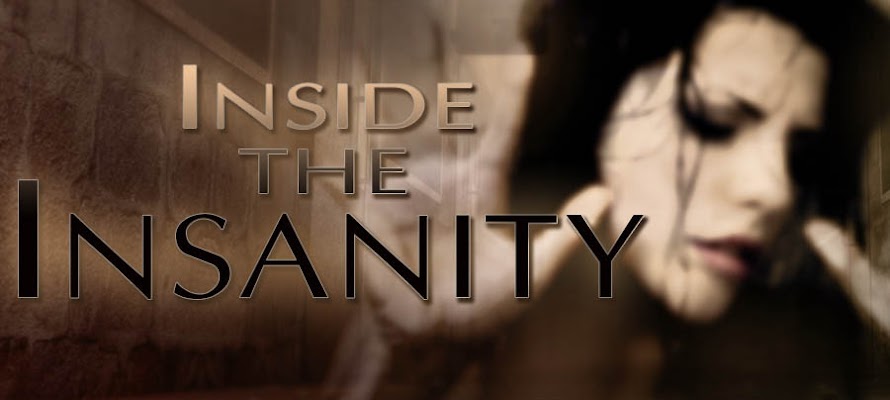
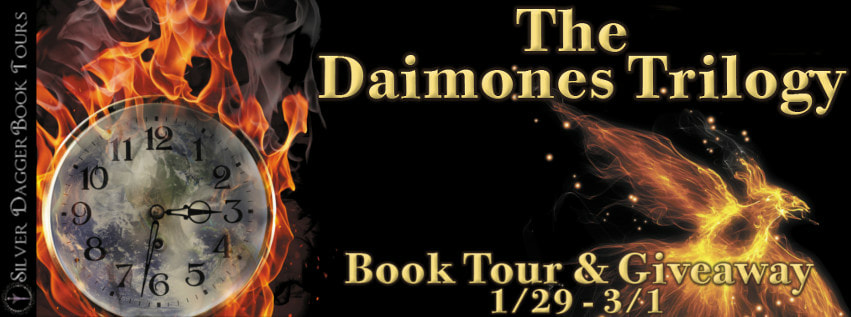
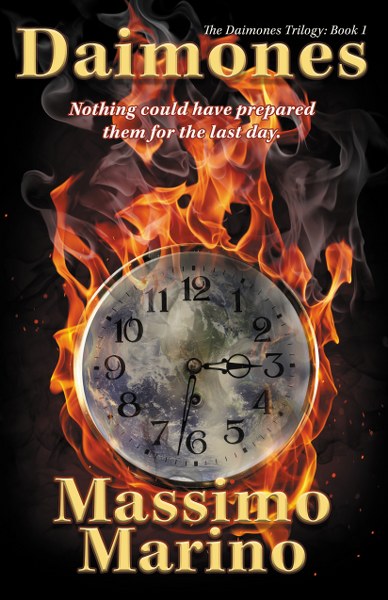

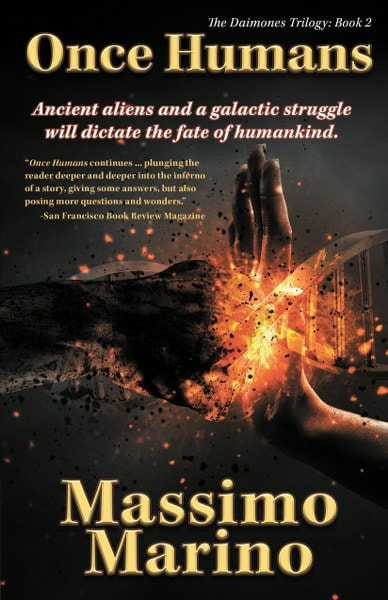
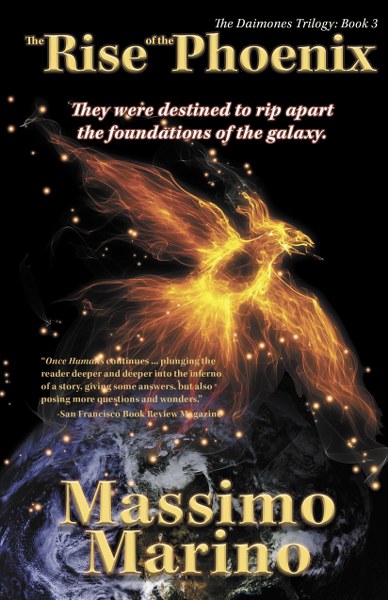

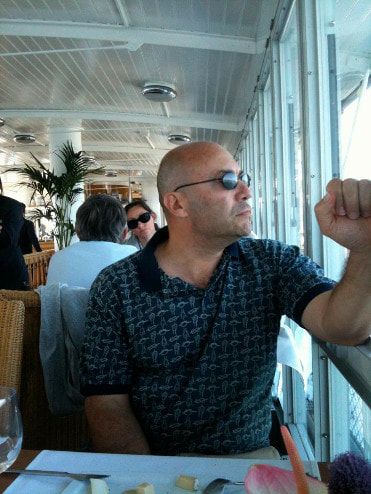

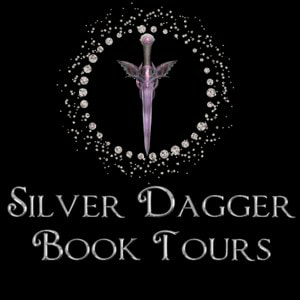
No comments:
Post a Comment